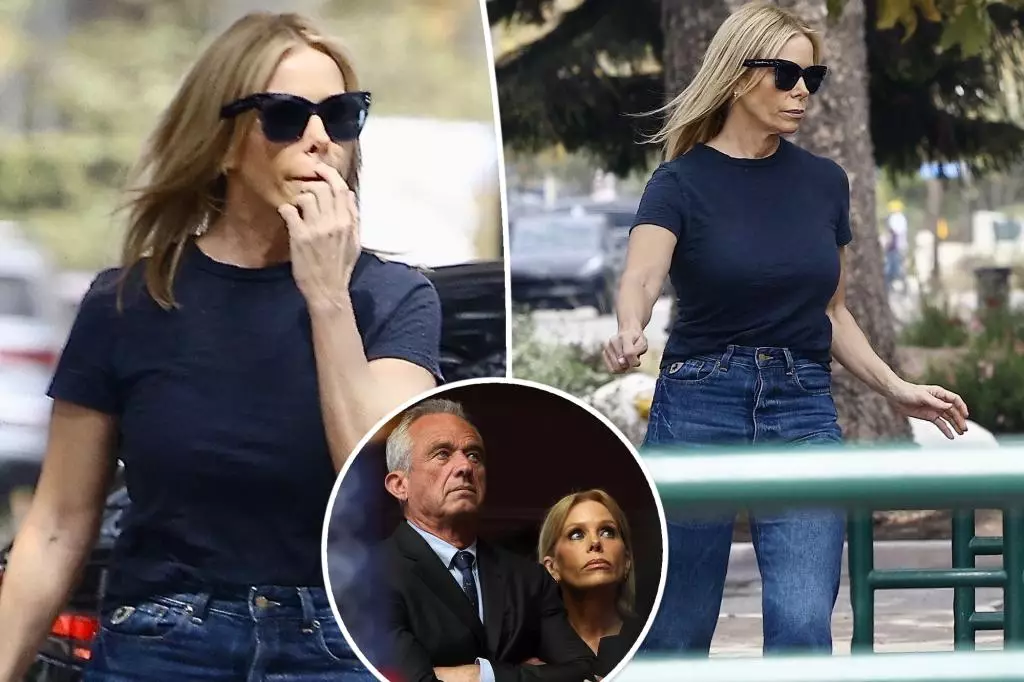Cheryl Hines and Robert F. Kennedy Jr. recently made headlines when they were photographed together for the first time since allegations of infidelity involving Kennedy surfaced. The couple was seen in Malibu after a casual visit to Starbucks, a seemingly mundane outing that underscored the tumultuous backdrop of their relationship. While Hines opted for a relaxed look in a black T-shirt and jeans, the absence of her wedding ring suggested deeper troubles lurking beneath the surface.
The alleged scandal is centered around Kennedy’s reported affair with journalist Olivia Nuzzi, which emerged after she wrote an article about him for New York magazine. This revelation was exacerbated by claims from at least three other women who purportedly engaged in romantic relationships with Kennedy in recent months, all of whom reportedly connected with him through his anti-vaccine organization, Children’s Health Defense. These accusations have not only placed Hines in a difficult position but have also shone a spotlight on the complexities of navigating personal and public life in the face of scandal.
According to insiders familiar with the couple’s dynamic, Hines has felt deeply embarrassed—not for the scandal itself, but because her husband was caught. Sources indicate that the actress, known for her role in “Curb Your Enthusiasm,” has had minimal communication with Kennedy since the rumors began swirling. This silence speaks volumes about the strain in their relationship. Additionally, reports suggest that Hines might be contemplating divorce, which adds another layer of complexity to an already fraught situation.
However, it is essential to note that the crux of Hines’ discomfort may well transcend the infidelities—that is, the political implications of Kennedy’s recent endorsements. Reports claim that Hines, a lifelong Democrat, is more troubled by Kennedy’s endorsement of Donald Trump after he withdrew from the 2024 presidential race than by his extramarital affairs. Sources emphasize that it was not the quintessential Kennedy philandering that surprised Hines, but rather her involuntary association with a political figurehead whose ideologies are starkly at odds with her own values.
A Tug of War Between Loyalty and Values
Kennedy himself has acknowledged the difficulties in their relationship stemming from his political choices, revealing that Hines was uncomfortable with his support of Trump. He noted that while she had tried to be supportive, it was never something she endorsed. This conflict manifests as a tug of war between personal loyalty and public principles—a dynamic that may ultimately decide the fate of their marriage.
As Cheryl Hines and Robert F. Kennedy Jr. continue to navigate this challenging landscape, their situation serves as a vivid illustration of how personal relationships can become entangled with public personas, often leading to confusion and conflict on multiple fronts. As the couple wrestles with allegations and political differences, their story stands as a potent reminder of the challenges faced by public figures in both their private and professional lives.

